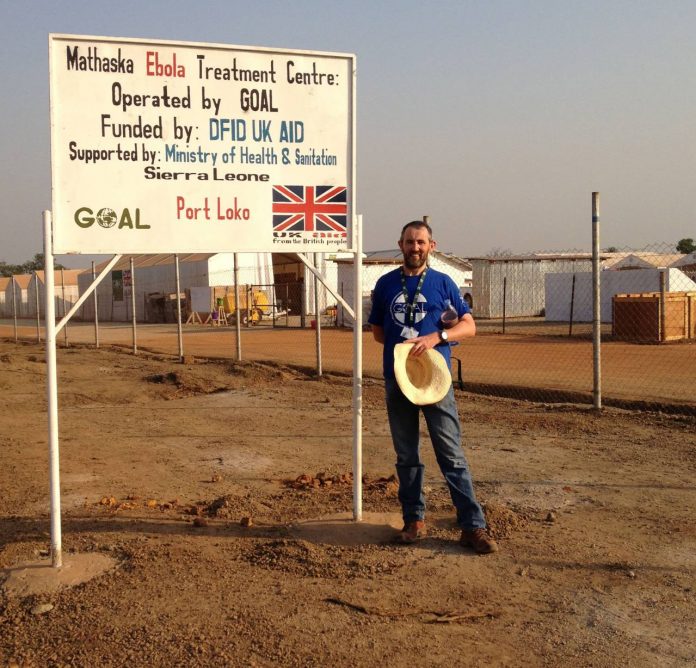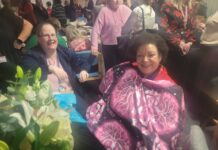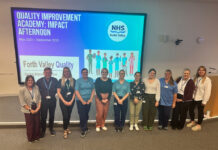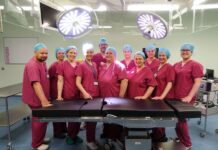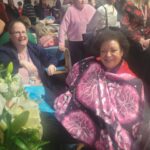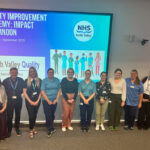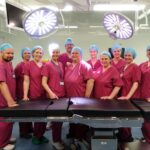Staff News interviewed Emergency Consultant Dr Roger Alcock just before he travelled to Sierra Leone to help tackle the Ebola crisis. Now back from his medical mission, he shares his personal thoughts and experiences on his time in Africa.
Diagnosed with Ebola he is four years old but so malnourished his tiny frame resembles a child just half his age. Alone, and speaking neither English or Creole he lies in a cot in a Port Loko treatment centre, clearly terrified at the sight of medics moving around in suits reminiscent of ‘aliens.’
The doctor caring for him observes his fear, hears his crying and then starts to sing softly – the Sky Boat Song. Five minutes later the child is heavy lidded and drifts off to sleep. Eventually he recovers and is discharged back to the care of the local hospital where he will be treated for malnutrition.
“For me that moment summed up what we were there to do – treat people with Ebola while restoring their dignity and respect” says Dr Alcock, the medic who sang (badly, he says!) the traditional Scottish folk song.
His arrival in Sierra Leone was not perhaps what the first volunteers from the UK expected. The rainy season had gone on longer than normal and the first four or five days were spent sloshing around in mud and water with the treatment centre still not completed.
However, wards were quickly equipped with beds, and patients started arriving from community care centres and Ebola holding centres. Some were sadly so sick that they collapsed and died as they were being helped out of the transport vehicles.
Dr Alcock admits that the risks of contracting Ebola were always on his mind. “You had to be constantly aware all the time. The people who were the biggest risk to you in catching Ebola after the patients were your colleagues so there was a policy of ABC – avoid body contact. You didn’t touch anybody, even to shake hands.”
“Needlestick injuries were a constant risk and, as we were frequently treating babies and very young children, we got a teddy bear and placed it on a table to practice what we were going to do as a team.
“Reassuring and gaining the trust of local people was also much more difficult when kitted out in protective suits but we wrote our names on the suits and would bring in toys for the children and try to get the patients their favourite food – hot pepper soup!
During their time in Sierra Leone the team helped to significantly reduce the mortality rate and Dr Alock says his experience there made him appreciate how lucky we are.
“On a professional level I gained a lot of skills in managing tropical and high risk infectious diseases, along with many generic non technical skills which will be very useful.”
Would he do it all over again? “Yes I would. If I had children I would look at things differently but I have a very supportive wife who understood the context and relative risk. My friends and colleagues were also fantastic and I appreciate all their practical and emotional support.”
